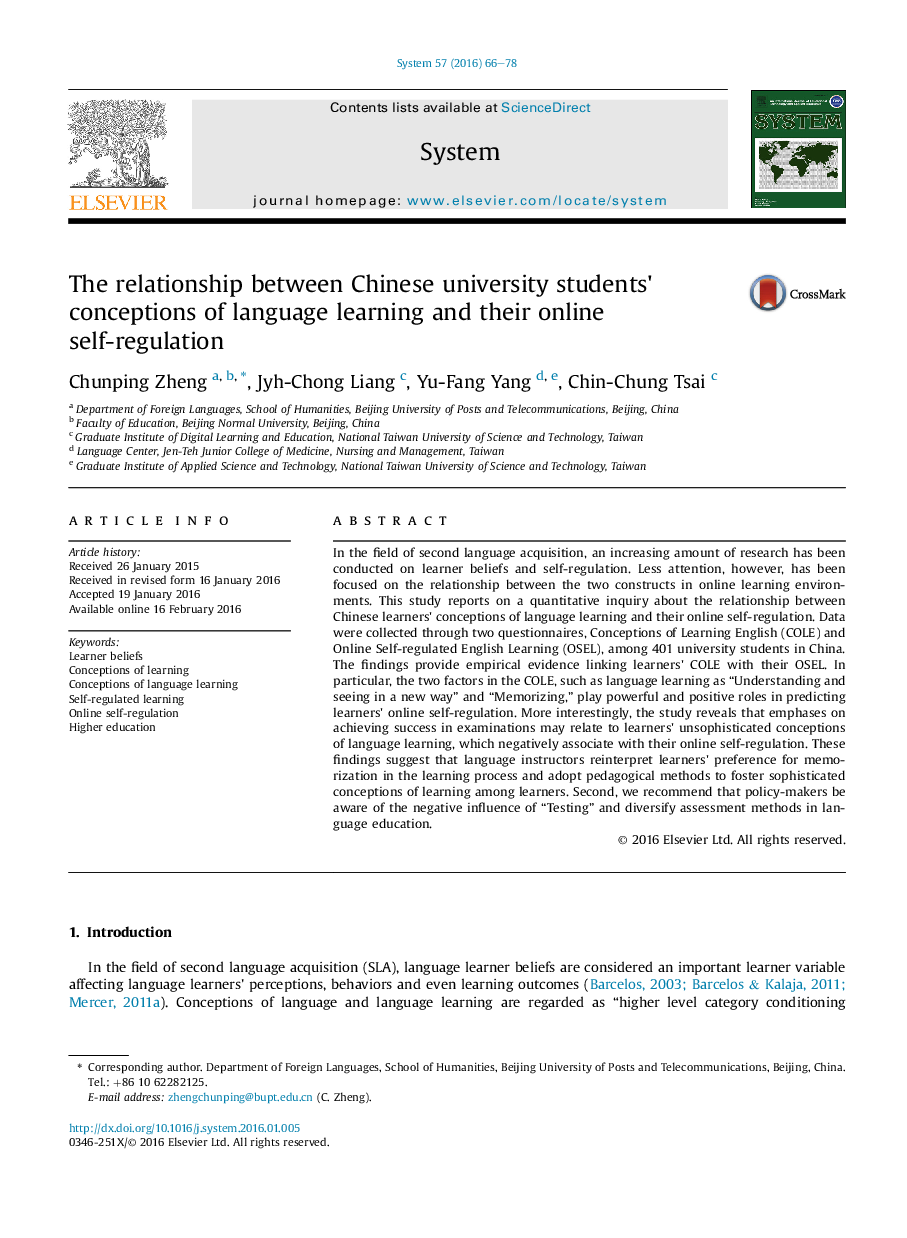| Article ID | Journal | Published Year | Pages | File Type |
|---|---|---|---|---|
| 372908 | System | 2016 | 13 Pages |
In the field of second language acquisition, an increasing amount of research has been conducted on learner beliefs and self-regulation. Less attention, however, has been focused on the relationship between the two constructs in online learning environments. This study reports on a quantitative inquiry about the relationship between Chinese learners' conceptions of language learning and their online self-regulation. Data were collected through two questionnaires, Conceptions of Learning English (COLE) and Online Self-regulated English Learning (OSEL), among 401 university students in China. The findings provide empirical evidence linking learners' COLE with their OSEL. In particular, the two factors in the COLE, such as language learning as “Understanding and seeing in a new way” and “Memorizing,” play powerful and positive roles in predicting learners' online self-regulation. More interestingly, the study reveals that emphases on achieving success in examinations may relate to learners' unsophisticated conceptions of language learning, which negatively associate with their online self-regulation. These findings suggest that language instructors reinterpret learners' preference for memorization in the learning process and adopt pedagogical methods to foster sophisticated conceptions of learning among learners. Second, we recommend that policy-makers be aware of the negative influence of “Testing” and diversify assessment methods in language education.
